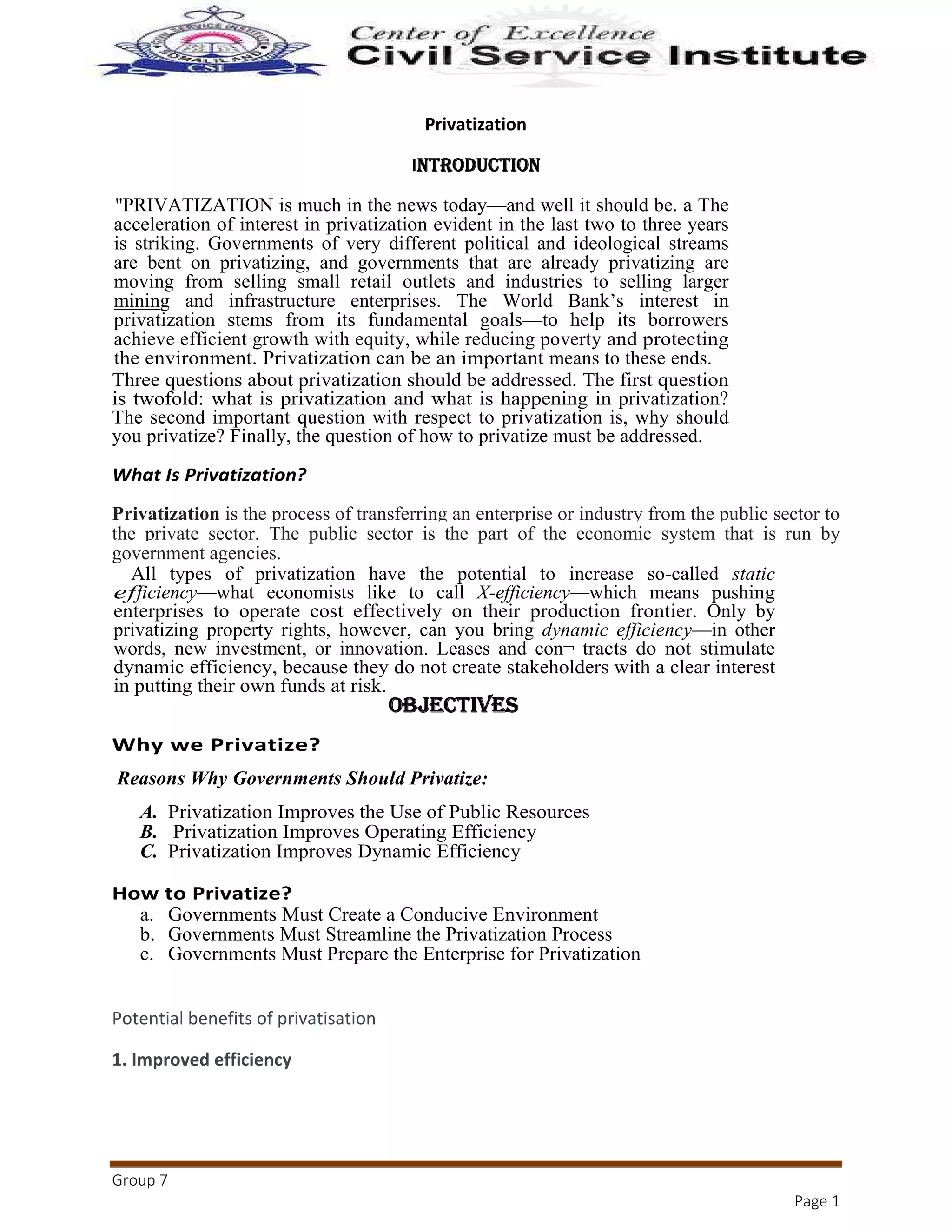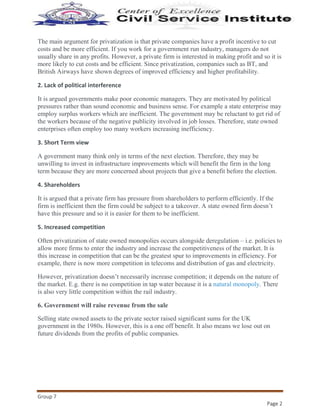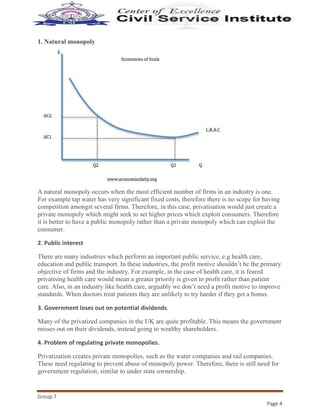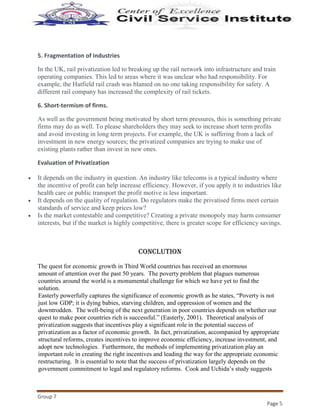This document discusses privatization and provides an introduction, definitions, and objectives. Privatization is defined as transferring an enterprise from the public to private sector. Governments pursue privatization to improve efficiency and reduce costs. Reasons for privatization include improving resource use, operating efficiency, and dynamic efficiency through investment. Methods for privatizing include creating an enabling environment, streamlining the process, and preparing enterprises. Potential benefits are discussed such as improved efficiency and lack of political interference, as well as potential disadvantages like natural monopolies and loss of dividends. The success of privatization depends on factors like industry, regulation, and competition.


![Group 7
Page 3
REPORTREPORTREPORTREPORT
Table 1-1 Distinction between the Public and Private Sectors
Public sector Private sector
Management
Agent-principal
relationship:
Orientation:
Style:
Constraint:
Blurred
Inward and production focus
Reactive
Politically constrained
Clear
Consumer and marketing focus
Proactive
Stakeholders interests but less
constrained
Goals
Goal clarity:
Focus:
Multiple and sometimes
vague and conflicting (public
interests)
On inputs
One-dimensional (profit)
On outputs and outcomes
Organizational structure
Hierarchy:
Type of structure:
Hierarchical pyramid and
centralised
Functional
Decentralized and diversified
Business based on profit centres
Labour
Union strength:
Payment:
Security:
High unionization and
centralised bargaining
Salary grading
High security of employment
Lower unionization and decentralised
bargaining
Employment based on performance
Low security of employment
Responsiveness to cost control
Cost Control Less cost control due to tax
financing
High cost control to become
competitive
Nature and location of the business
Nature:
Development:
Politically and
geographically
constrained
Limited business
Commercially determined
Diversification, investment and
divestment, mergers and overseas
Source: [Pirie, 1988; and Martin and Parker, 1997]
Disadvantages of privatization](https://image.slidesharecdn.com/privatization-170131082504/85/Privatization-3-320.jpg)


